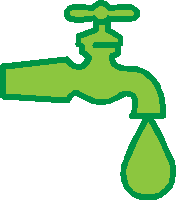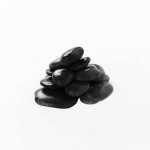No gall bladder, no stones. True, but the removal of this occasionally troublesome little sac can soon result in several problems.
Job Description of the Gall Bladder
The gall bladder is a small green sac attached to the liver. Its sole purpose is to store and release bile for the digestion of fats and oils. However it does not manufacture bile. That’s one of the liver’s many jobs.
If you’ve had repeated gall bladder attacks of pain, your doctor may have told you 3 things:
1) You have gallstones. (These are composed of crystallized cholesterol, one of the two major components of bile.)
2) Don’t eat greasy foods. (These stimulate the gall bladder to contract, which can be uncomfortable if you have stones.)
3) You will benefit from having the gall bladder surgically removed. (eep!)
While #s 1 and 2 make perfect sense, it’s #3 that concerns me. In my practice I have met an alarming number of clients who have had their gall bladders removed, often at an early age (for ex., twenty-something). Guess what? The main reason that many of them are consulting with me is: IBS. Irritable Bowel Syndrome. Could this be a coincidence? Maybe. Or could it have anything to do with the following facts?
Without a gall bladder, here are the problems that can be expected:
1) One cannot digest fats properly. Bile is essential to the digestion and absorption of dietary fats. When deficient, the resulting symptoms can be smelly bowel gas, and alternating constipation with diarrhea—not to mention, poor absorption of essential fats like your omega-3s, for instance.
2) One runs the risk of fat -soluble nutrient deficiencies. Vitamins A, D, E and K cannot be absorbed from the foods you eat or the supplements you take if the fats they are attached to are not fully digested.
3) One’s risk of developing colon cancer is increased. Without a gall bladder, there is nowhere to store bile. It drips directly from the liver into the intestine, at the same rate, 24/7 . Researchers believe this constant exposure of bile is corrosive to the colon walls, causing cellular mutations that lead to cancer.
It concerns me when I hear from multiple clients who have had this surgery (a cholecystectomy) that they were never informed of the above risks. Secondly, it’s disturbing to hear that their medical doctors gave no dietary or lifestyle advice post-surgery on how to live well without a gall bladder. I think it’s because surgeons believe that the gall bladder is the source of their patient’s problems and that removing it will remove the problems.
me when I hear from multiple clients who have had this surgery (a cholecystectomy) that they were never informed of the above risks. Secondly, it’s disturbing to hear that their medical doctors gave no dietary or lifestyle advice post-surgery on how to live well without a gall bladder. I think it’s because surgeons believe that the gall bladder is the source of their patient’s problems and that removing it will remove the problems.
Fortunately, since the majority of risk factors for gallstones are diet-related, it can be prevented in most cases. A registered nutritionist can assist those with gall bladder-related issues by providing meal planning education that better supports their ability to get the most out of their dietary fats while keeping related disease risks to a minimum.
Have you had your gall bladder removed? If so, did it improve your quality of life?

